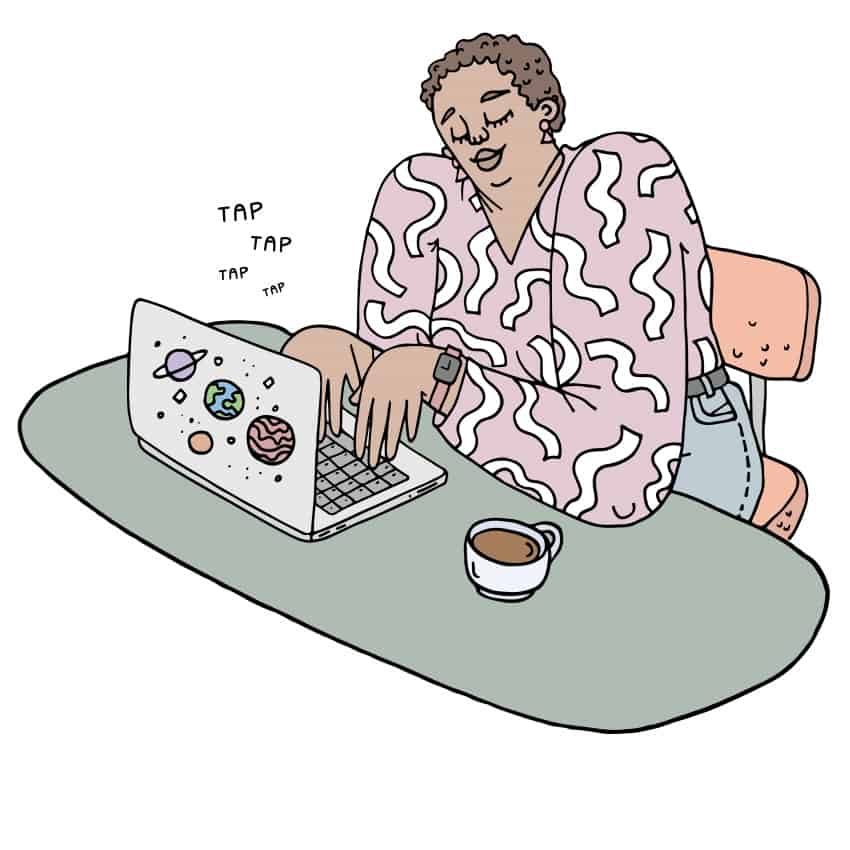
Having a digital identity, which once referred only to how cool you look in your profile picture, has become increasingly important and complex in modern times. Despite its growing relevance, many are willfully ignorant of the identity they are creating online.
If you’re like me, a majority of your day is spent online in one way or another. I check Twitter, Facebook, Reddit, YouTube, Instagram and Snapchat multiple times a day — maybe closer to multiple times an hour. Each of these platforms contributes to my digital identity.
On Instagram, I might be a selfie aficionado. At the same time, on Facebook, I am seemingly a professional university student. Despite the differences between these platforms — and how I choose to represent myself on them — they both contribute to my overall identity online.
The internet is a tool for many positive things and a few not-so-positive ones. For every funny cat video, there is a vaguely racist presidential tweet. For every heartwarming post your grandma makes about your birthday, there is a not-so-heartwarming post she makes about her feelings on immigration.
Every time you post something online, no matter where you post it, you are sending that out to the entire world. Ask yourself this: are you saying something that you’re comfortable with strangers knowing?
As part of this social-media generation, how do you create a positive digital identity that is not only truthful but also safe? Here are a few things to consider when posting online that can help you create a digital self that you can be proud of.
When you type up that strongly worded status, about your political views or otherwise, imagine that you are looking a stranger in the eyes and saying it to them. If doing that makes you uncomfortable, then maybe that status is better off not being posted. Or, possibly, you just don’t like eye contact. Either way, think about it for a few minutes before you post.
Now what about pictures? What is the difference between a cute Instagram post and something that is going to get your application turned down at a law firm?
When it comes to posting pictures and videos online, especially of yourself, you have to be extremely wary of the image you are creating. Visuals carry more weight than some faceless forum post stating your views about the ending of Lost. Pictures and videos are media formats that directly relate to your physical identity.
Let’s say you post a video of yourself finishing a two-six of vodka in a minute. Yeah, that’s pretty impressive, but is that the first impression you want to have on others? If an employer, relative or potential partner sees this post before anything else, it is possible that they will not be able to forget the image.
First impressions are important, and nowadays, it is very likely that your first encounter with a new person will take place online. Often, the content you post serves as your introduction to people you may soon meet in real life. So, be careful how you introduce yourself, and maybe, choose to post that cute selfie instead of the panorama of your four-foot bong.
The easiest way to keep yourself safe online is simply to limit what you choose to share. Feel free to have fun and do stupid things once in awhile, but don’t feel pressured to advertise every aspect of yourself online.
Having a distinct digital identity is becoming more and more important to our everyday lives, but that doesn’t diminish the need for a real identity. Not every part of you has to be online, and it’s refreshing to find out something about someone that you can’t just Google. Just remember, the things you post online do not go away — and your grandma will probably see them.
—
Blake Graham
Graphic: Jaymie Stachyruk